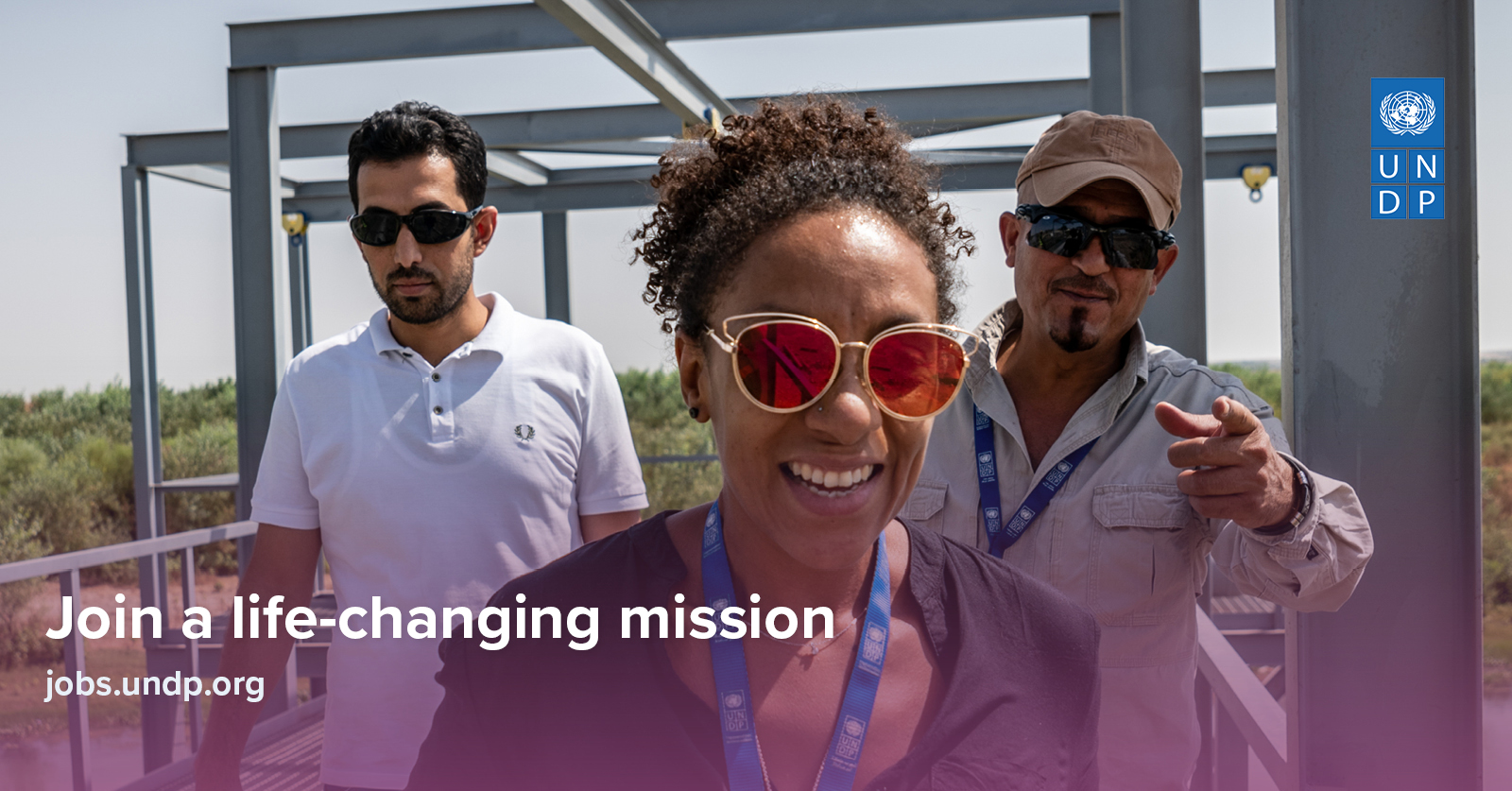
Corporate Background
UNDP works in about 170 countries and territories, helping to achieve the eradication of poverty, and the reduction of inequalities and exclusion. We help countries to develop policies, leadership skills, partnering abilities, institutional capabilities and build resilience in order to sustain development results.
UNDP is working to strengthen new frameworks for development, disaster risk reduction and climate change. We support countries’ efforts to achieve the new Sustainable Development Goals, which will guide global development priorities through 2030. The key 2030 Agenda principle of leaving no one behind and stamping out inequality is at the core of everything we do.
UNDP focuses on helping countries build and share solutions in three main areas:
• Sustainable development
• Democratic governance and peacebuilding
• Climate and disaster resilience
In all our activities, we encourage the protection of human rights and the empowerment of women, minorities and the poorest and most vulnerable.
Internship Office Background
Most commodity sectors in developing countries are afflicted by poor production practices that lead to increasing pressure on ecosystems and fail to improve the livelihoods of rural communities. Poor production practices lead to negative environmental impacts such as biodiversity loss, deforestation, carbon emissions, soil erosion, depletion of water resources and contamination from chemicals. In fact, the largest driver of deforestation is the production of agricultural commodities. On the social side, working conditions in commodity production are often not in line with basic labor rights. Despite recent commodity booms, small producers are held in poverty, mostly due to low productivity and product quality. Despite the progress made through standards and supply-chain initiatives, weaknesses in the underlying enabling environment limit change at a larger scale. An effective enabling environment consists of elements such as clear public policies, a well-functioning legal framework, clarity regarding land-use planning, effective enforcement mechanisms, accessible credit structures, and effective farmer extension services. As a result of the absence of these elements, work on commodity sustainability remains less effective than it could be, and costlier and more time-consuming than it should be. Improving the enabling environments will increase the chances of sector-wide change to sustainable production practices.
UNDP has developed its Strategy for Food and Agricultural Commodity Systems (FACS) to focus its vision and enhance its support to transform FACS. FACS are fundamental to the sustainable development of the 170 countries UNDP supports. FACS are often the largest contributor to their economies; food and nutrition is fundamental for citizen health; and FACS have a key role to play in achieving the SDGs. Yet, FACS are in crisis and need to be radically transformed to become sustainable. UNDP, building on its experience, has for the first time consolidated its FACS support and vision into this Strategy.
A FACS practice has been established within UNDP´s Nature, Climate and Energy team, which is tasked to support UNDP Country Offices with FACS related challenges in a way that is aligned with UNDP´s FACS strategy.
UNDP´s Green Commodities Programme (GCP) is one of UNDP´s global projects in support of implementing UNDP´s FACS strategy. GCP’s global targets, objectives and delivery strategies are based on inclusive and sustainable growth and development – combining governments and markets in agriculture through public private partnerships and democratic dialogue processes. GCP’s focus on strengthening the livelihoods of smallholder producers within commodity supply chains and reducing environmental footprints, particularly deforestation, through public private partnerships can be key for UNDP’s ambitions to reduce poverty, reduce deforestation and engage the private sector in SDGs.
Through the GCP project, FACS intends to improve the national economic, social and environmental performance of agricultural commodity sectors. GCP works within agricultural commodity production in countries of UNDP operation where the programme can have significant impact on rural livelihoods, mitigate climate change, and maintain the ecosystem services and resilience of landscapes and seascapes. In November 2021, UNDP launched the Effective Collaborative Action (ECA) guidebook, which gathers key principles and practices for accelerating transformation of food systems.
GCP supports the World Bank with the implementation of the Food Systems, Land Use and Restoration (FOLUR) Impact Program (IP), financed under GEF-7. The Programme is designed to promote sustainable integrated landscapes and efficient food value chains at scale. The GCP coordinates the Good Growth Partnership coalition, whose support focuses on the FOLUR Global Platform with the objective of contributing to transformational shifts in the use of environmentally sustainable practices and policies for priority global value chains.
In addition, GCP has different sources of funds including from the Government of the Republic of Ireland, to support the FAO and UNDP co-design of a Country Support Facility, as a follow-up action to the 2021 UN Food Systems Summit.





